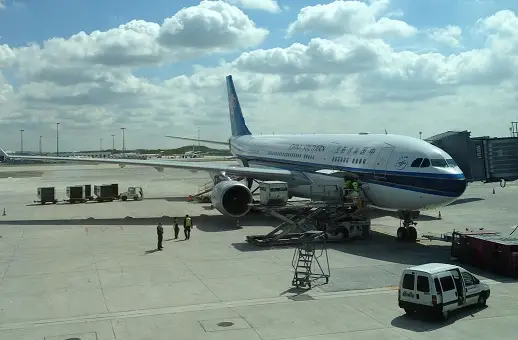American regulators have been applying pressure to Chinese companies for months now, seeking to force them to comply with America listing rules. However on Friday, five of China’s biggest state-owned companies announced that instead, they would be exiting Wall Street and taking $318 billion in value with them. It may mark a turning point in the coming US-China decoupling as political tensions rise between the superpowers.
State insurer China Life Insurance, energy giants PetroChina and China Petroleum & Chemical Corporation, Aluminum Corporation of China, and Sinopec Shanghai Petrochemical all announced they would be delisting from the New York Stock Exchange, as Washington and Beijing continue to struggle over the issue of allowing American inspectors conduct audits of the books of Chinese companies. Analysts say it could be the beginning of a flood of hundreds of China-based companies either fleeing, or being ejected from US stock exchanges.
Indications are other Chinese companies have begun preparations for exiting US exchanges. Liqian Ren, director of modern alpha at investment firm WisdomTree Asset Management said in an interview, “The state-owned firms are seeing that the writing is on the wall for them,” and other companies are preparing their exits.
The US and China are increasingly butting heads over the issue of allowing US inspectors to audit the books of Chinese firms, to protect the interest of American investors. The US auditors want full access to Chinese business records and the company’s auditors. However China has declared this a national security risk, and has refused. Analysts predict the US may forcibly delist more than 260 Chinese companies worth over $1.3 trillion by 2024 if Washington and Beijing cannot come to an agreement.
The security regulator of China dismissed the significance of the announcement, saying “listings and delistings are… common in capital markets.” It noted the five companies were always in compliance with US rules and regulations, and the delistings were only, “made out of business considerations.”
After the delistings, only two Chinese state-owned enterprises (SOEs) will remain on US stock exchanges, both airlines. Ren says they will both, “definitely be considering” delisting. State-owned firms in China all contain information which Beijing considers critical to its national security, and which it will not want American government officials accessing.
While other non-state-owned firms will want to maintain their American listings, Ren says they will have to, “review the situation and make a strategic choice.” For most, she says they will review the situation and probably judge the US listing as carrying too big a risk of causing them to be caught in the crossfire between the US government and Beijing, as geopolitical tensions rise.
On July 29th, US regulators added Chinese giant Alibaba to the delisting watchlist, which will require them to provide their auditing data to US regulators. Alibaba subsequently announced they were changing their Hong Kong listing from a secondary listing to a primary one, something analysts could not help but note would make it very convenient in the event they were forced to relinquish their American listing.
In the meantime, America has continued to add Chinese companies to the delisting watchlist. SEC chair Gary Gensler has stated US regulators will demand nothing less than complete compliance from Chinese companies.
China meanwhile has sought a compromise, whereby non-state-owned companies would open their books to American inspectors, but China would be allowed to keep certain companies from having to provide sensitive information such as state-owned companies and technology firms.
Ren noted that while, “China does have incentives to improve their relations with the U.S., [their ties] have been seriously damaged in the last few years. The trust is very low, especially with the recent Taiwan flareup. At the same time, U.S. regulators have been very clear that they want full access and compliance. There’s not going to be a two-tier system of access”
Brendan Brendan Ahern, chief investment officer at KraneShares, a China-focused investment fund argues however, that the five state firms delisting could be a sign an agreement is in the offing. Once the state-owned entities are delisted, he notes the, “remaining non-state companies have long-stated that they have nothing to hide.”
Still, the SEC continues to grow its delisting watchlist. The SEC has now put 159 Chinese companies on that list, with the warning they will be forcibly expelled if they do not comply. In an April note, China-focused research firm Trivium wrote, Washington “clearly won’t give an inch. There is no compromise to be had. The Chinese side [must] do all the conceding.”

